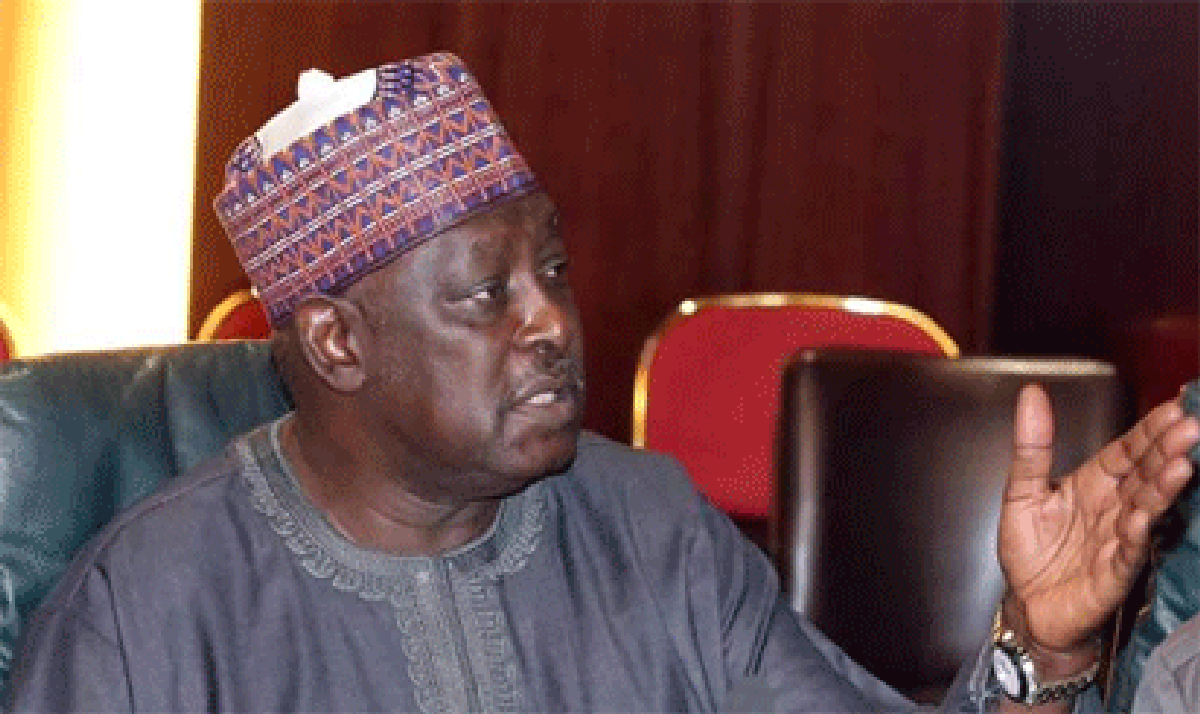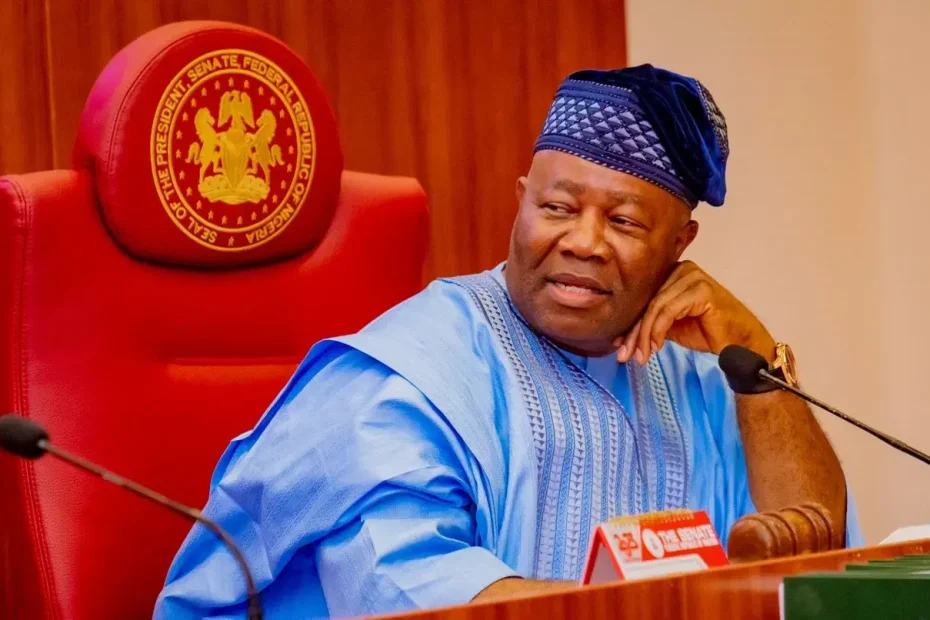Headlines
APC Same-Faith Ticket: Why We Are Yet to Follow Reconciliatory Path – Lawal

A former Secretary to the Government of the Federation, Babachir Lawal, has again spoken against the Muslim-Muslim ticket of the All Progressives Congress, stating that Christian politicians in Northern Nigeria would remain steadfast in their stand for justice, equity and fair play.
According to him, any nation or political dispensation built on injustice would crumble because justice and equity settle all other disputes.
Lawal, in a statement on Sunday titled, “Why we are doing what we are doing,” pleaded with Nigerians to understand the position of the Northern Christian politicians on the Muslim-Muslim ticket of the All Progressives Congress for the 2023 presidential election.
He said neither the APC presidential candidate, Asiwaju Bola Tinubu, nor his running mate, Kashim Shettima and the political party has seen anything wrong in their choice of a same-faith ticket for the presidency in the coming election, to make peace with or assuage the feelings of northern Christian politicians.
The statement read, “We have so far not taken the road to reconciliation because, in the first instance, neither the APC as a party nor its presidential candidate has bothered to seek us out for reconciliation even though early on, our doors were left open for such.
“There are of course some ‘Christian’ turncoats and ‘Judases’ who, driven either by moral turpitude, poverty or greed, have hired themselves out as agents and spoilers of this noble Christian cause.
“To this group, I wish to recommend the study of the biographies of Judas Iscariot and Ahithophel in the Bible. Be careful to note how their lives ended.
“It seems that Tinubu/Shettima’s preferred approach is to attempt to counter our position through insults and sponsored fake Christian organisations to create the impression that there is a division within the Christendom on this matter.”
He noted that the strategy has failed with them becoming the butt of jokes in church gatherings across the country.
“This approach has also portrayed the duo as arrogant and pitiable people whilst also exposing them to the public as people with unimaginable deficiencies of noble character,” he added.
“And, broken they will be indeed. We noticed this trend in APC right from its registration in 2014 up to the 2022 convention, where the overriding goal seemed to have been to exclude northern Christians from all the organs of the party.
The Punch
Headlines
Trump Signs Spending Bill to End Longest Government Shutdown

US President Donald Trump has signed a federal spending bill, officially ending the longest government shutdown in American history.
The legislation, passed by the House of Representatives in a 222–209 vote, followed narrow approval in the Senate just two days earlier. The bill restores funding to federal agencies after 43 days of closure, bringing relief to millions of government employees and citizens affected by halted services.
Speaking after signing the measure on Wednesday night, Trump described the deal as a political victory, asserting that Democrats unnecessarily prolonged the shutdown.
“They didn’t want to do it the easy way. They had to do it the hard way, and they look very bad,” he said.
The temporary funding bill maintains government operations only through 30 January, creating a new deadline for lawmakers to negotiate a long-term budget solution.
As part of the agreement, Senate leaders committed to an early December vote on Obamacare subsidies, a key priority for Democrats during the shutdown standoff.
In addition to reopening federal offices, the bill provides full-year funding for the Department of Agriculture, military construction projects, and several legislative branch offices.
It also ensures retroactive pay for federal workers affected by the shutdown and allocates funding to the Supplemental Nutrition Assistance Program, SNAP, which helps about one in eight Americans access food.
The shutdown, which began in October, forced the suspension of many government services, leaving an estimated 1.4 million federal employees either furloughed or working without pay. It also disrupted food assistance programmes and caused widespread delays in domestic air travel.
With federal operations now resumed, attention in Washington has turned to whether Congress and the White House can reach a longer-term funding agreement before the new deadline at the end of January.
Headlines
FG Halts Planned 15% Import Duty on Diesel, Petrol

The Nigerian Midstream and Downstream Petroleum Regulatory Authority (NMDPRA), on Thursday, announced discontinuation of the planned 15 per cent duty on imported petroleum products.
NMDPRA’s Director, Public Affairs Department, George Ene-Ita, conveyed the development in a statement while warning the public to shun panic buying.
President Bola Tinubu, on October 29, approved an import tariff on petrol and diesel, a policy expected to raise the landing cost of imported fuel.
The President’s approval was conveyed in a letter signed by his Private Secretary, Damilotun Aderemi, following a proposal submitted by the Executive Chairman of the Federal Inland Revenue Service, Zacch Adedeji.
The proposal sought the application of a 15 per cent duty on the cost, insurance, and freight value of imported petrol and diesel to align import costs with domestic market realities.
Implementation was slated to take effect on November 21, 2025.
The policy aimed to protect and promote local refineries like the Dangote Refinery and modular plants by making imported fuel more expensive.
While intended to boost local production, it is also expected to increase fuel costs, which could lead to higher inflation and transportation prices for consumers.
Experts have argued that the move could translate into higher pump prices for consumers, with some estimating an increase of up to N150 per litre or more.
In an update, however, NMDPRA said the government was no longer considering going ahead with implementing the petrol import duty.
“It should also be noted that the implementation of the 15% ad-valorem import duty on imported Premium Motor Spirit and Diesel is no longer in View,” the statement read in part.
Meanwhile, the NMDPRA also assured all that there is an adequate supply of petroleum products in the country, within the acceptable national sufficiency threshold, during this peak demand period.
“There is a robust domestic supply of petroleum products (AGO, PMS, LPG, etc) sourced from both local refineries and importation to ensure timely replenishment of stocks at storage depots and retail stations during this period.
“The Authority wishes to use this opportunity to advise against any hoarding, panic buying or non-market reflective escalation of prices of petroleum products.
“The Authority will continue to closely monitor the supply situation and take appropriate regulatory measures to prevent disruption of supply and distribution of petroleum products across the country, especially during this peak demand period.
“While appreciating the continued efforts of all stakeholders in the midstream and downstream value chain in ensuring a smooth and uninterrupted supply and distribution, the public is hereby assured of NMDPRA’s commitment to guarantee energy security,” the statement added.
Headlines
Senate Approves Tinubu’s N1.15tr Domestic Loan Request to Fund 2025 Budget Deficit

The Senate has approved President Bola Tinubu’s request to raise N1.15 trillion from the domestic debt market to cover the unfunded portion of the 2025 budget deficit.
The approval followed the adoption of a report by the Senate Committee on Local and Foreign Debt during plenary on Wednesday.
The committee noted that the 2025 Appropriation Act provides for a total expenditure of N59.99 trillion, representing an increase of N5.25 trillion over the N54.74 trillion initially proposed by the Executive.
This expansion created a total budget deficit of N14.10 trillion. Of this, N12.95 trillion had already been approved for borrowing, leaving an unfunded deficit of approximately N1.15 trillion (N1,147,462,863,321).
In a related development, a motion by Senator Abdul Ningi was adopted, directing the Senate Committee on Appropriations to intensify its oversight to ensure that the borrowed funds are properly implemented in the 2025 fiscal year and used strictly for their intended purposes.
President Tinubu had on November 4th requested the approval of the National Assembly for a fresh ₦1.15 trillion borrowing from the domestic debt market to help finance the deficit in the 2025 budget.
The President’s request was conveyed in a letter. According to the letter, the proposed borrowing is intended to bridge the funding gap and ensure full implementation of government programs and projects under the 2025 fiscal plan.






